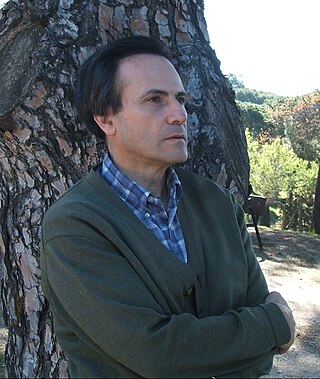Computer music is the application of computing technology in music composition, to help human composers create new music or to have computers independently create music, such as with algorithmic composition programs. It includes the theory and application of new and existing computer software technologies and basic aspects of music, such as sound synthesis, digital signal processing, sound design, sonic diffusion, acoustics, electrical engineering, and psychoacoustics. The field of computer music can trace its roots back to the origins of electronic music, and the first experiments and innovations with electronic instruments at the turn of the 20th century.
Electronic music broadly is a group of music genres that employ electronic musical instruments, circuitry-based music technology and software, or general-purpose electronics in its creation. It includes both music made using electronic and electromechanical means. Pure electronic instruments depended entirely on circuitry-based sound generation, for instance using devices such as an electronic oscillator, theremin, or synthesizer. Electromechanical instruments can have mechanical parts such as strings, hammers, and electric elements including magnetic pickups, power amplifiers and loudspeakers. Such electromechanical devices include the telharmonium, Hammond organ, electric piano and electric guitar.

Raymond Scott was an American composer, band leader, pianist, record producer, and inventor of electronic instruments.
Glitch is a genre of electronic music that emerged in the 1990s which is distinguished by the deliberate use of glitch-based audio media and other sonic artifacts.

IRCAM is a French institute dedicated to the research of music and sound, especially in the fields of avant garde and electro-acoustical art music. It is situated next to, and is organisationally linked with, the Centre Pompidou in Paris. The extension of the building was designed by Renzo Piano and Richard Rogers. Much of the institute is located underground, beneath the fountain to the east of the buildings.

Roger Lee Reynolds is an American composer. He is known for his capacity to integrate diverse ideas and resources, and for the seamless blending of traditional musical sounds with those newly enabled by technology. Beyond composition, his contributions to musical life include mentorship, algorithmic design, engagement with psychoacoustics, writing books and articles, and festival organization.
Richard Vance Maxfield was a composer of instrumental, electroacoustic, and electronic music.

Eduardo Reck Miranda is a Brazilian composer of chamber and electroacoustic pieces but is most notable in the United Kingdom for his scientific research into computer music, particularly in the field of human-machine interfaces where brain waves will replace keyboards and voice commands to permit the disabled to express themselves musically.
Founded in 1986, La Communauté électroacoustique canadienne / The Canadian Electroacoustic Community (CEC) is Canada's national electroacoustic / computer music / sonic arts organization and is dedicated to promoting this progressive art form in its broadest definition: from "pure" acousmatic and computer music to soundscape and sonic art to hardware hacking and beyond.
Trevor Wishart is an English composer, based in York. Wishart has contributed to composing with digital audio media, both fixed and interactive. He has also written extensively on the topic of what he terms "sonic art", and contributed to the design and implementation of software tools used in the creation of digital music; notably, the Composers Desktop Project.
Eldad Tsabary is a composer living in Montreal. He composes and performs in a variety of styles including contemporary, experimental, acousmatic, sound art, and live electronics. His works, in all styles, are created with wide textural and timbral variety and attention to motion and process.
Maggi Payne is an American composer, flutist, video artist, recording engineer/editor, and historical remastering engineer who creates electroacoustic, instrumental, vocal works, and works involving visuals.

Pedro Vilarroig is a professor of physics and cosmology at the Universidad Politécnica of Madrid and a former Spanish composer. He is a proponent of neotonalism, having founded and led the Asociación Española de Compositores Neotonales.
Roger Thornton Dean is a British-Australian musician, academic, biochemist and cognitive scientist. He is married to poet, writer, musician and academic Hazel Anne Smith, and was educated in the UK at the Crypt School, Gloucester, and Corpus Christi College, Cambridge. Formerly, he was the foundation Director of the Heart Research Institute, Sydney (1988–2002), and then the Vice-Chancellor and President of the University of Canberra (2002–2007). From 2007 onwards he is a research professor of sonic communication at the MARCS Institute, Western Sydney University.

Erdem Helvacioglu is an electronic musician from Turkey. He has collaborated with artists Mick Karn, Kevin Moore, John Wilson, Kazuya Ishigami, and Saadet Turkoz. He also composes music for theatre, film and multimedia productions, and produces for popular and rock music bands in Turkey. He has received numerous international awards including prizes from the Luigi Russolo and Insulae Electronicae Electroacoustic Music Competitions.
Fabio Cifariello Ciardi is an Italian composer of acoustic and electroacoustic music.
Scott Wilson is a Canadian composer. He studied music and composition in Canada, the U.S., and Germany, and his teachers include Barry Truax, Wolfgang Rihm, Christos Hatzis, Gary Kulesha, Ron Kuivila, Alvin Lucier, Owen Underhill, Neely Bruce and David Gordon Duke. Since 2004 he has lived in Birmingham, UK, where he is Reader in Electronic Music and Director of Birmingham ElectroAcoustic Sound Theatre and the Electroacoustic Studios at the University of Birmingham.

David Worrall is an Australian composer and sound artist working a range of genres, including data sonification, sound sculpture and immersive polymedia as well as traditional instrumental music composition.
Zulema de la Cruz Castillejo is a Spanish pianist and composer.
Jeffrey Hass is a contemporary American classical composer of acoustic and electroacoustic music. He is best known for his compositions combining electronic soundtracks with solo instruments or with large ensembles such as wind ensemble and orchestra. He currently serves the Jacobs School of Music as professor emeritus.






